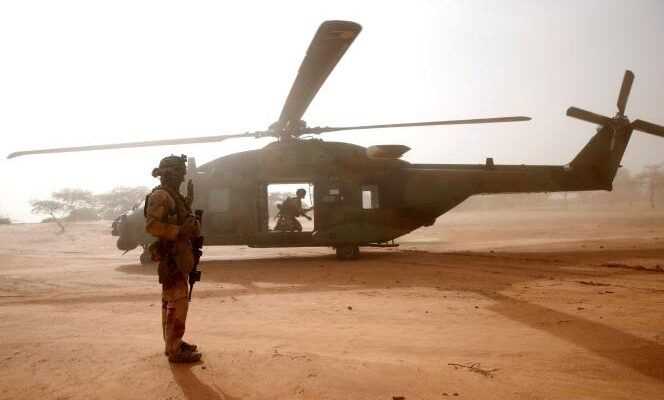Saigon 1975, Kabul 2021, Bamako 2025? Will it one day have to send a helicopter to evacuate the French ambassador to Mali in a country occupied by jihadist forces? The question is not completely incongruous when one thinks of the hasty departure of the Americans in Vietnam in the past, or in Afghanistan today.
From one area of crisis and from one power to another, we are well aware of the limits of Western military interventions. Only policy makers seem unwilling to learn from their failures.
The evolution of official discourse on the jihadist threat in the Sahel is quite significant in this regard. To justify France’s military commitment in the area, the “Serval” operations in 2013, then “Barkhane” from 2014, were first presented as interventions intended to prevent Mali from becoming a platform. of international terrorism, a kind of “new Afghanistan”. At the time, the comparison seemed to stand out on its own and it was fashionable to speak of “Sahelistan” or “crescent of terror” in the perspective of an “arc of crisis” which would have drawn its roots in the Middle East and Central Asia.
The deterioration of the situation in Kabul, however, ended up forcing the Elysee to review its language elements. Now, the comparison with Afghanistan is bad: with the approach of the elections, Emmanuel Macron does not want to be the president who will have to manage a humiliating retirement in Mali because of the strategic errors of his predecessor.
As the operation “Barkhane” silted up, what is more, the political decision-makers gradually became aware of the importance of the local dynamics of insurgencies hastily qualified as Islamist. It took eight years for the Elysee to publicly recognize that the French army could not replace failing states in the Sahel, a finding already made by some researchers as early as 2013.
As long as we accept to free ourselves from the usual clichés about the existence of an Islamist International, we must then admit that, despite certain iconographic and rhetorical similarities, the insurrectional groups in Mali are very different from the Afghan Taliban who took power in Kabul in 1996 and then in 2021.
Common enemy
The proof is that they have never seized the capital and do not have the capacity to govern the country. On the ground, they only managed to hold swathes of territory and briefly broke with the exercise of power after the capture of Timbuktu and Gao in 2012. At the time, the various competing factions were each pursuing their own. Iyad Ag-Ghali’s agenda and movement very likely disobeyed Al-Qaida’s instructions when it set out to descend southwards, provoking a massive reaction from the international community. It was the military intervention of France which, from 2013, united these groups around a common enemy.
You have 51.12% of this article left to read. The rest is for subscribers only.
